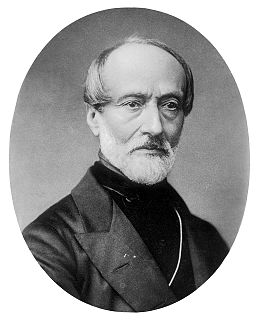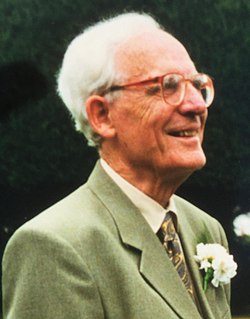A Quote by Alain de Botton
Differ though we might with Christianity's view of what precisely our souls need, it is hard to discredit the provocative underlying thesis, which seems no less relevant in the secular realm than in the religious one-that we have within us a precious, childlike, vulnerable core which we should nourish and nurture on its turbulent journey through life.
Related Quotes
Ultimately, one of the best ways to take care of our souls is to build a society that supports rather than undermines our highest moral and spiritual intuitions and inclinations. Yet, building that society can never be divided from the daily practices through which we live out our ethical and spiritual lives, both in the way we treat others around us, and in the way we nourish the God within us.
Spirituality is an inner fire, a mystical sustenance that feeds our souls. The mystical journey drives us into ourselves, to a sacred flame at our center. The purpose of the religious experience is to develop the eyes by which we see this inner flame, and our capacity to live its mystery. In its presence, we are warmed and ignited. When too far from the blaze, we are cold and spiritually lifeless. We are less than human without that heat. Our connection to God is life itself.
Life is not given to us that we might live idly without work. No, our life is a struggle and a journey. Goof should struggle with evil; truth should struggle with falsehood; freedom should struggle with slavery; love should struggle with hatred. Life is movement, a walk along the way of life to the fulfillment of those ideas which illuminate us, both in our intellect and in our hearts, with divine light.
Thus we arrive at the singular conclusion that of all the information passed by our cultural assets it is precisely the elements which might be of the greatest importance to us and which have the task of solving the riddles of the universe and of reconciling us to the sufferings of life -- it is precisely those elements that are the least well authenticated of any.
It seems to me there is less meanness in atheism, by a good measure. It seems that the spirit of religious self-righteousness this article deplores is precisely the spirit in which it is written. Of course he's right about many things, one of them being the destructive potency of religious self-righteousness. (p. 146)
We know only that we are living in these bodies and have a vague idea, because we have heard it, and because our faith tells us so, that we possess souls. As to what good qualities there may be in our souls, or who dwells within them, or how precious they are, those are things which seldom consider and so we trouble little about carefully preserving the soul's beauty.
Slavery, though under modifications which rendered it little more than the apprenticeship of our day, was permitted under the Mosaic dispensation; but it is contrary to the whole tenor of Christianity; and a system which lowers man as an intellectual and responsible being is no less morally than politically wrong.
True generosity consists precisely in fighting to destroy the causes which nourish false charity. False charity constrains the fearful and subdued, the "rejects of life," to extend their trembling hands. True generosity lies in striving so that these hands--whether of individuals or entire peoples--need be extended less and less in supplication, so that more and more they become human hands which work and, working, transform the world.
But before all else a work of art is the creation of love. Love for the subject first and for the medium second. Love is the fundamental necessity underlying the need to create, underlying the emotion that gives it form, and from which grows the unfinished product that is presented to the world. Love is the general criterion by which the rare photograph is judged. It must contain it to be not less than the best of which the photographer is capable.
There is no longer a Christian mind ... the modern Christian has succumbed to secularization. He accepts religion - its morality, its worship, its spiritual culture; but he rejects the religious view of life, the view which sets all earthly issues within the context of the eternal, the view which relates all human problems social, political, cultural to the doctrinal foundations of the Christian Faith, the view which sees all things here below in terms of God's supremacy and earth's transitoriness, in terms of Heaven and Hell.
I want relations which are not purely personal, based on purely personal qualities; but relations based upon some unanimous accord in truth or belief, and a harmony of purpose, rather than of personality. I am weary of personality. Let us be easy and impersonal, not forever fingering over our own souls, and the souls of our acquaintances, but trying to create a new life, a new common life, a new complete tree of life from the roots that are within us.
There are a lot of voices inside of us. We have the voices of our parents, our grandparents, our society, our bosses, our own should's and shouldn'ts, and our self-worth is in us, controlling us a lot. When we can get past all of those, and get to the deep, core part of us, there's a voice within our soul that I believe is connected to our Divine or Higher Self. That voice within is there to guide us through all aspects of our lives.
As a general rule of biology, migratory species are less 'aggressive' than sedentary ones. There is one obvious reason why this should be so. The migration itself, like the pilgrimage, is the hard journey: a 'leveller' on which the 'fit' survive and stragglers fall by the wayside. The journey thus pre-empts the need for hierarchies and shows of dominance. The 'dictators' of the animal kingdom are those who live in an ambience of plenty. The anarchists, as always, are the 'gentlemen of the road'.
When we are in love, our love is too big a thing for us to be able altogether to contain it within ourselves. It radiates towards the loved one, finds there a surface which arrests it, forcing it to return to its starting-point, and it is this repercussion of our own feeling which we call the other's feelings and which charms us more then than on its outward journey because we do not recognise it as having originated in ourselves.





































